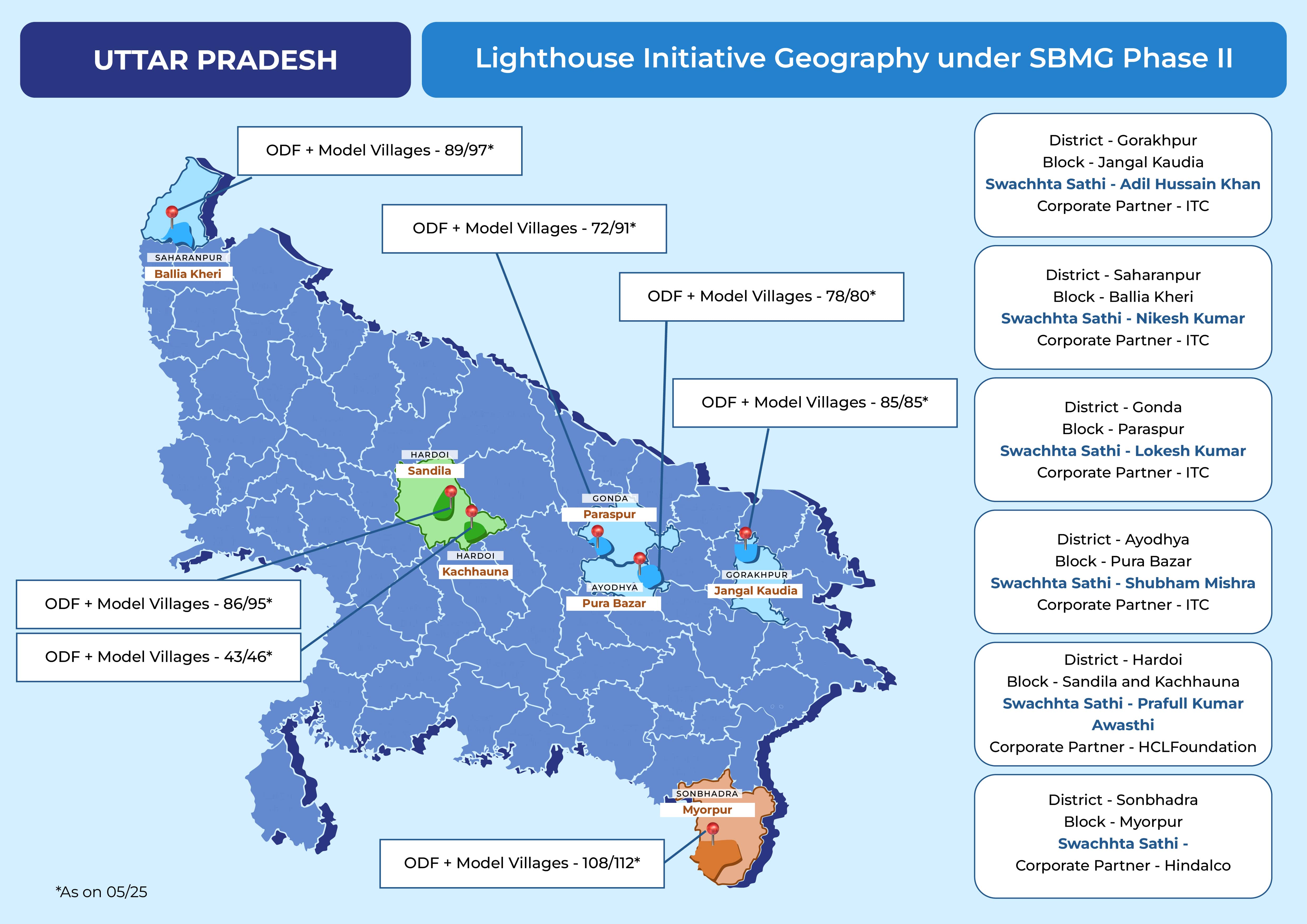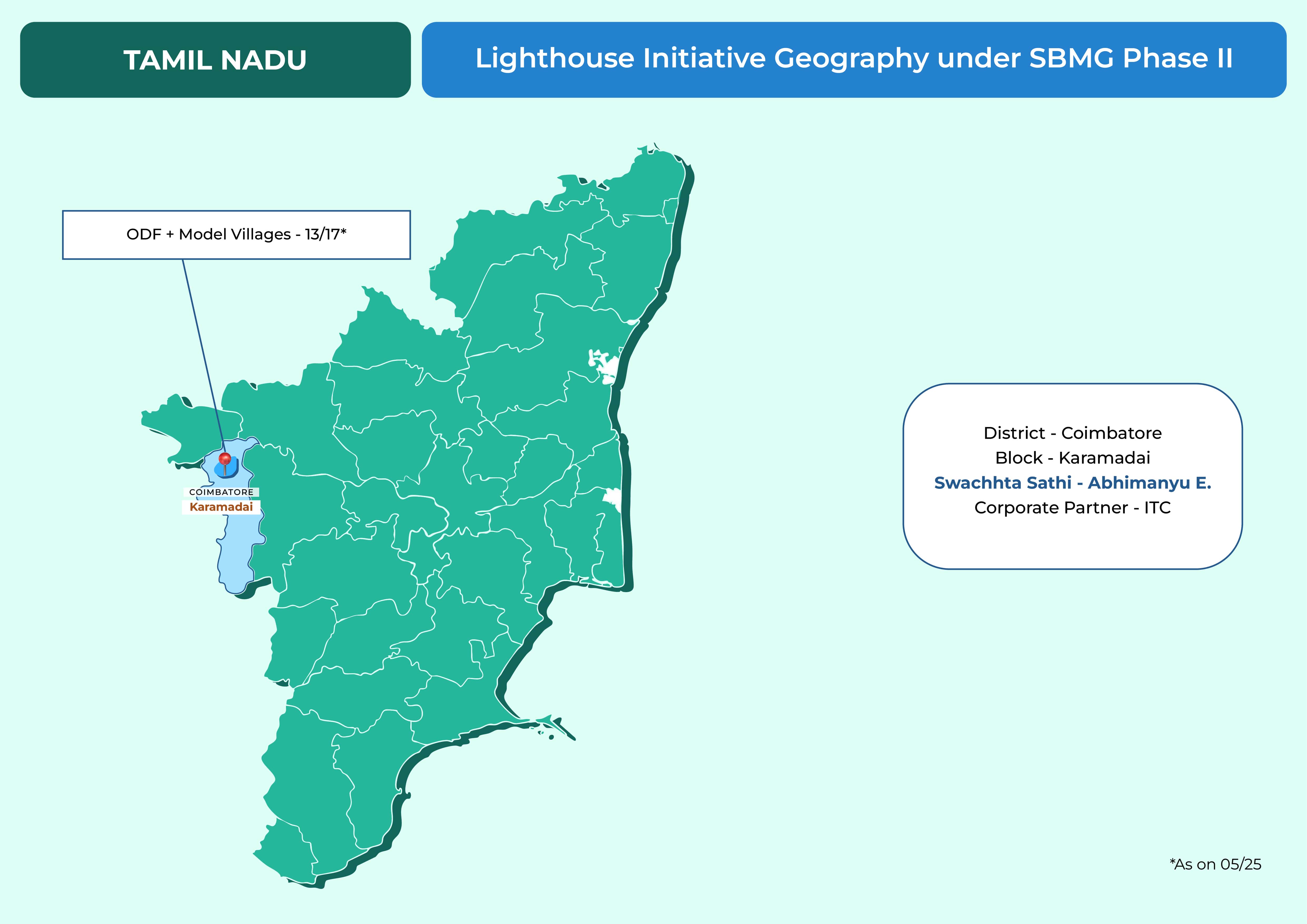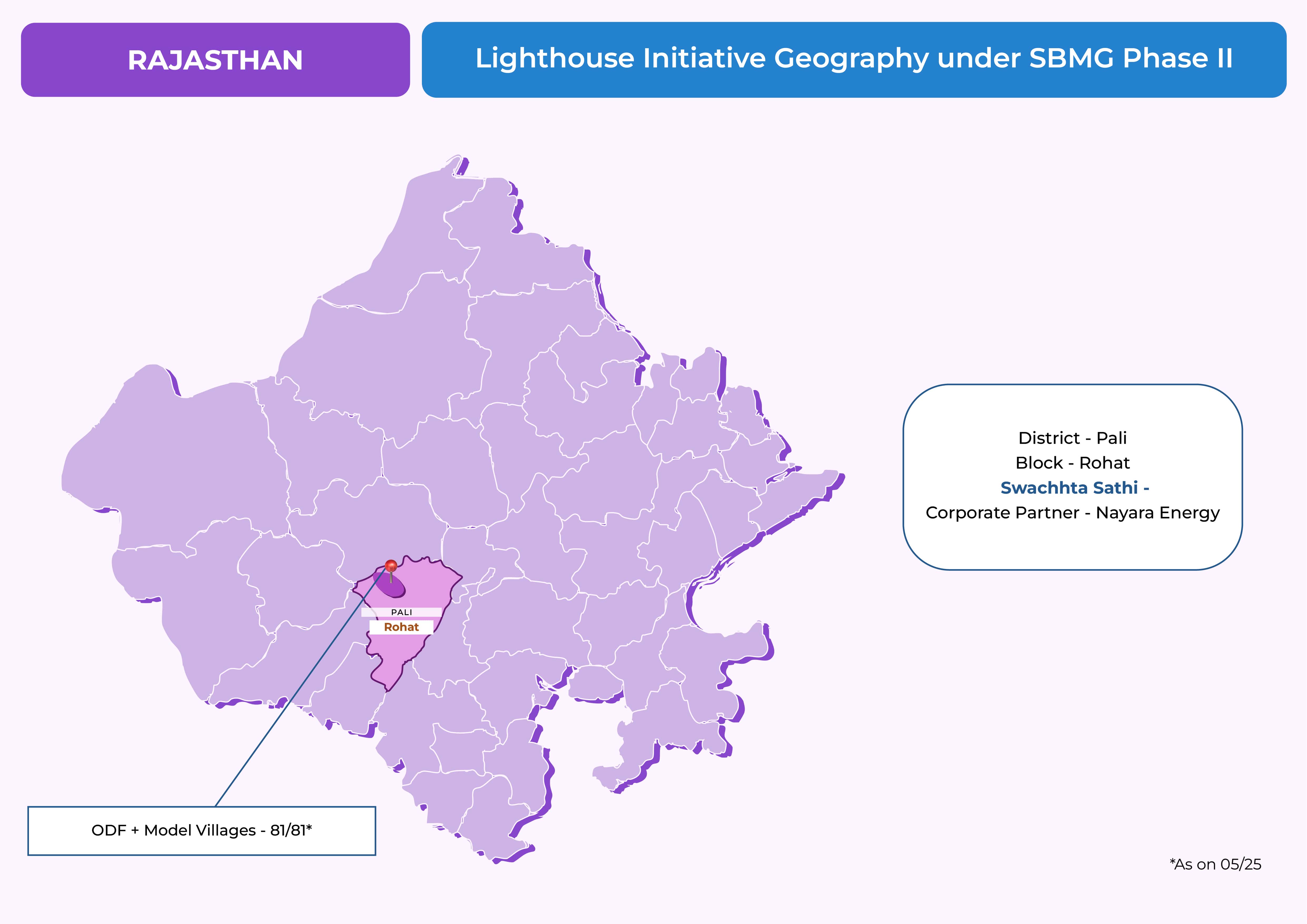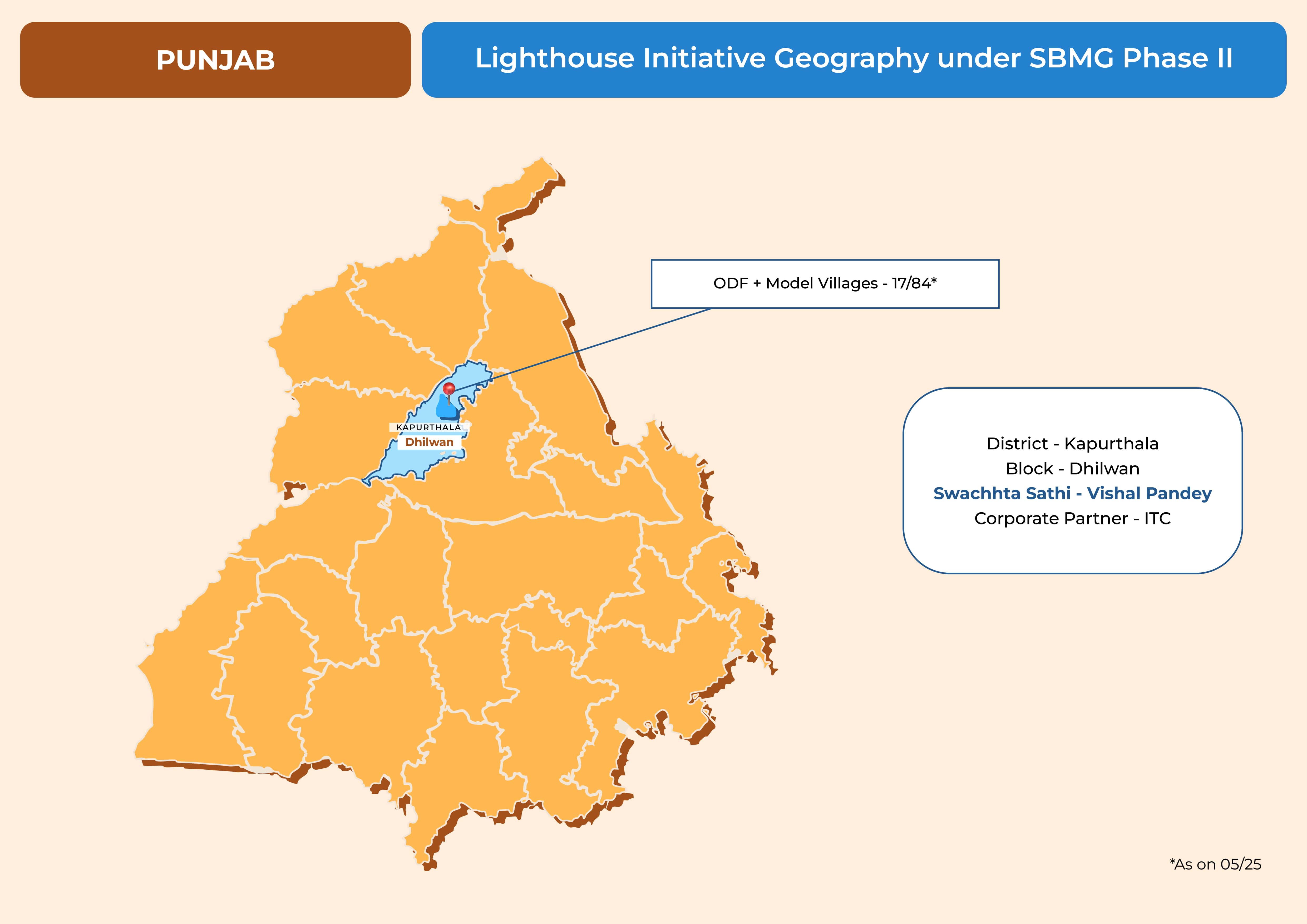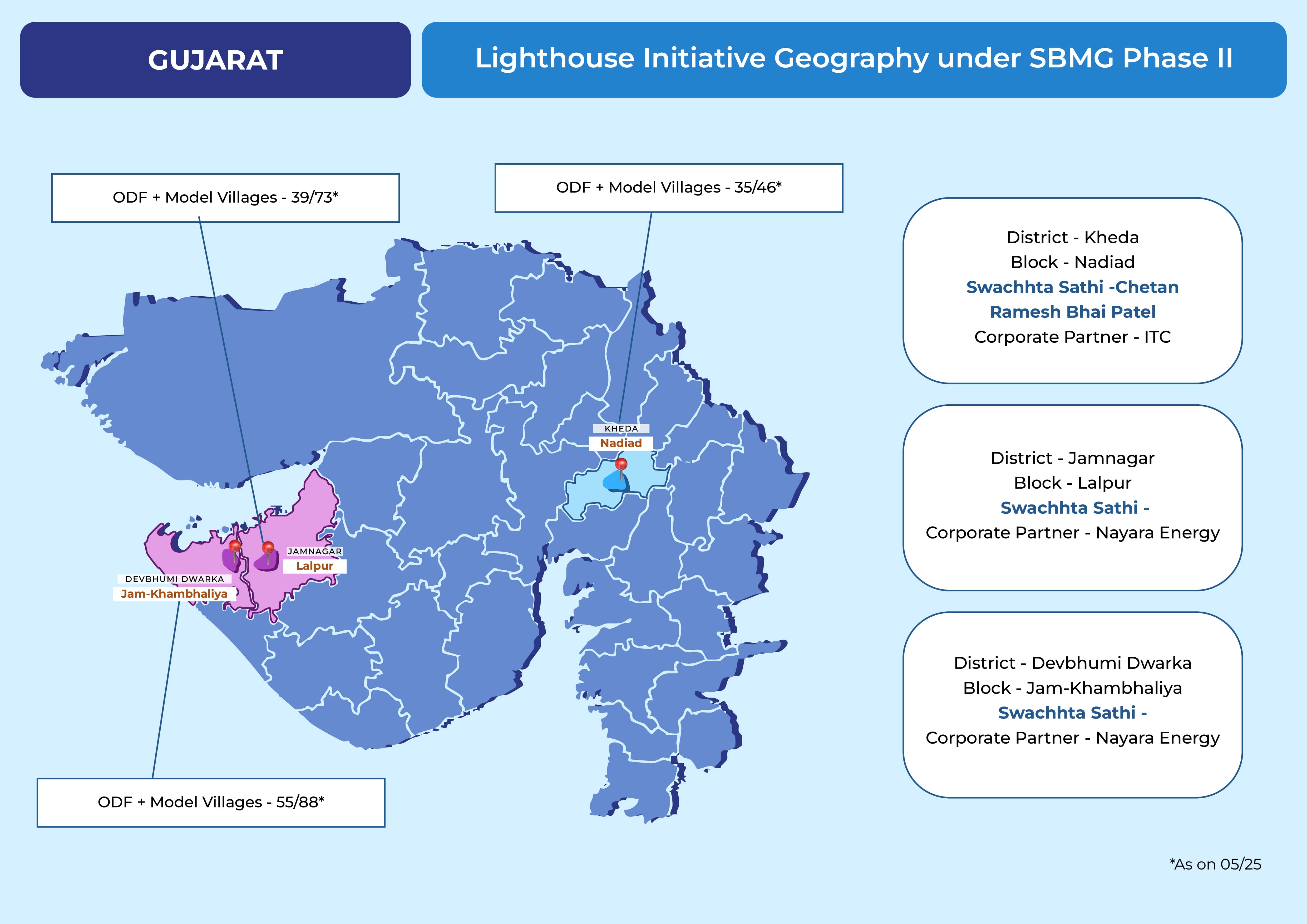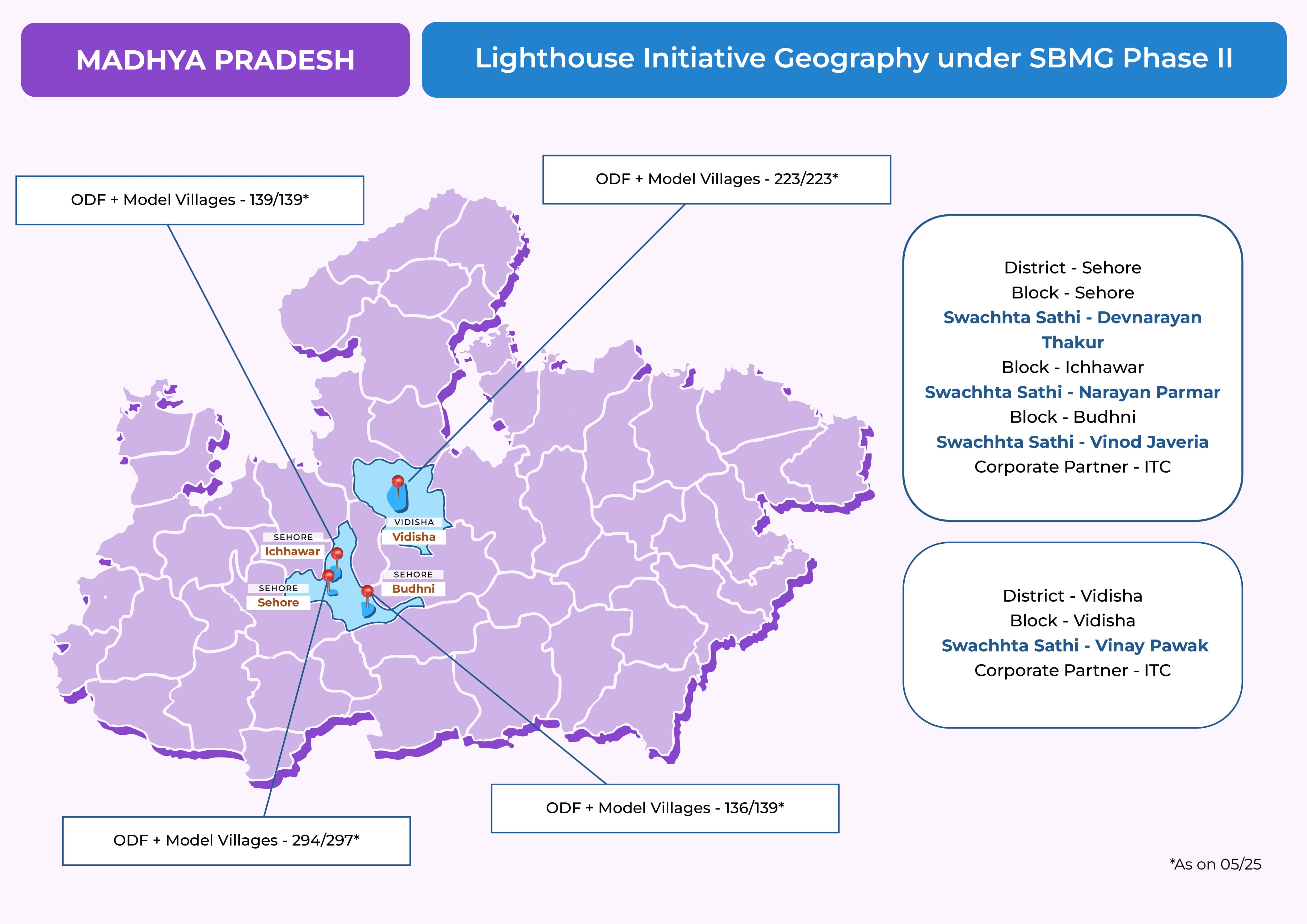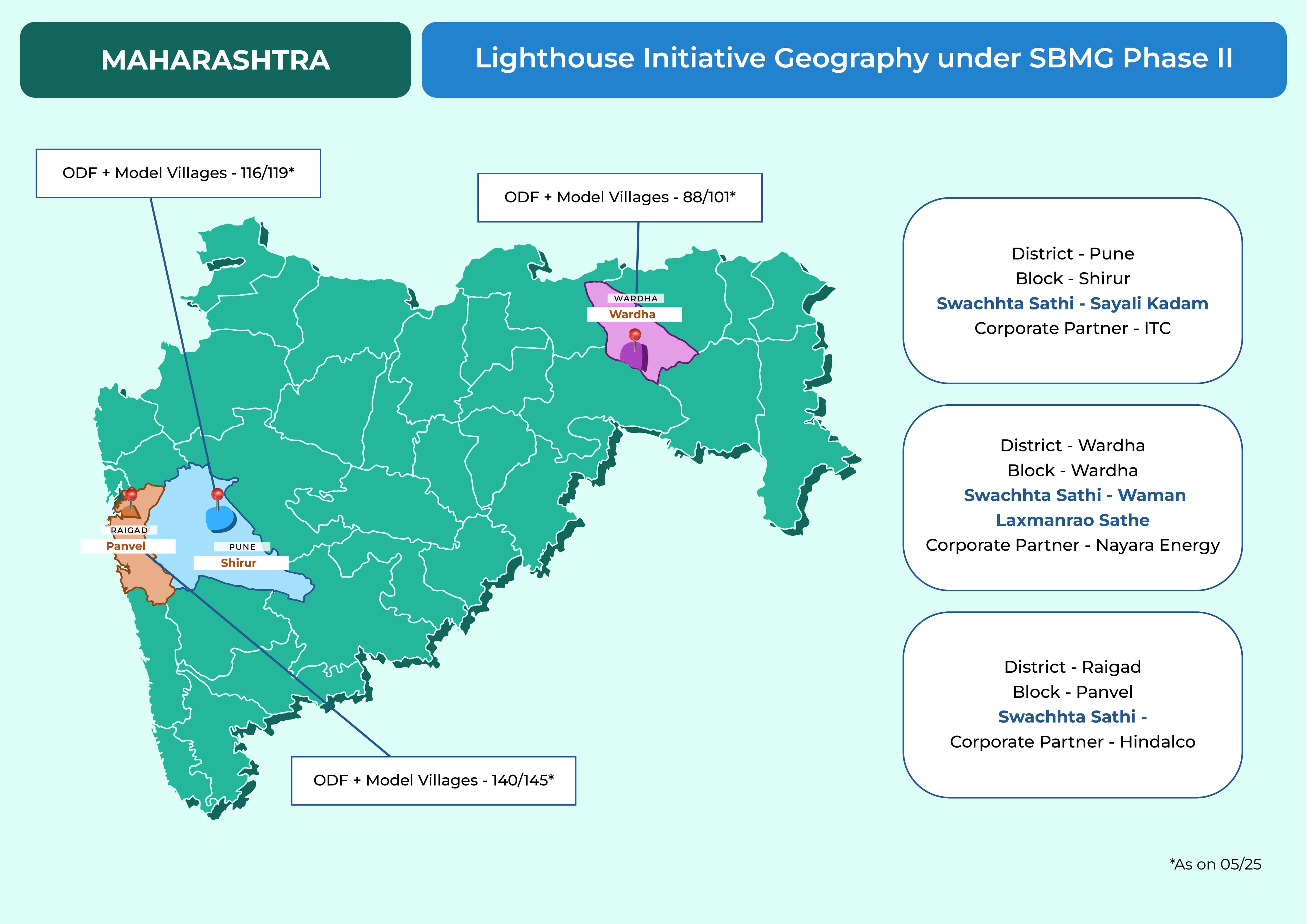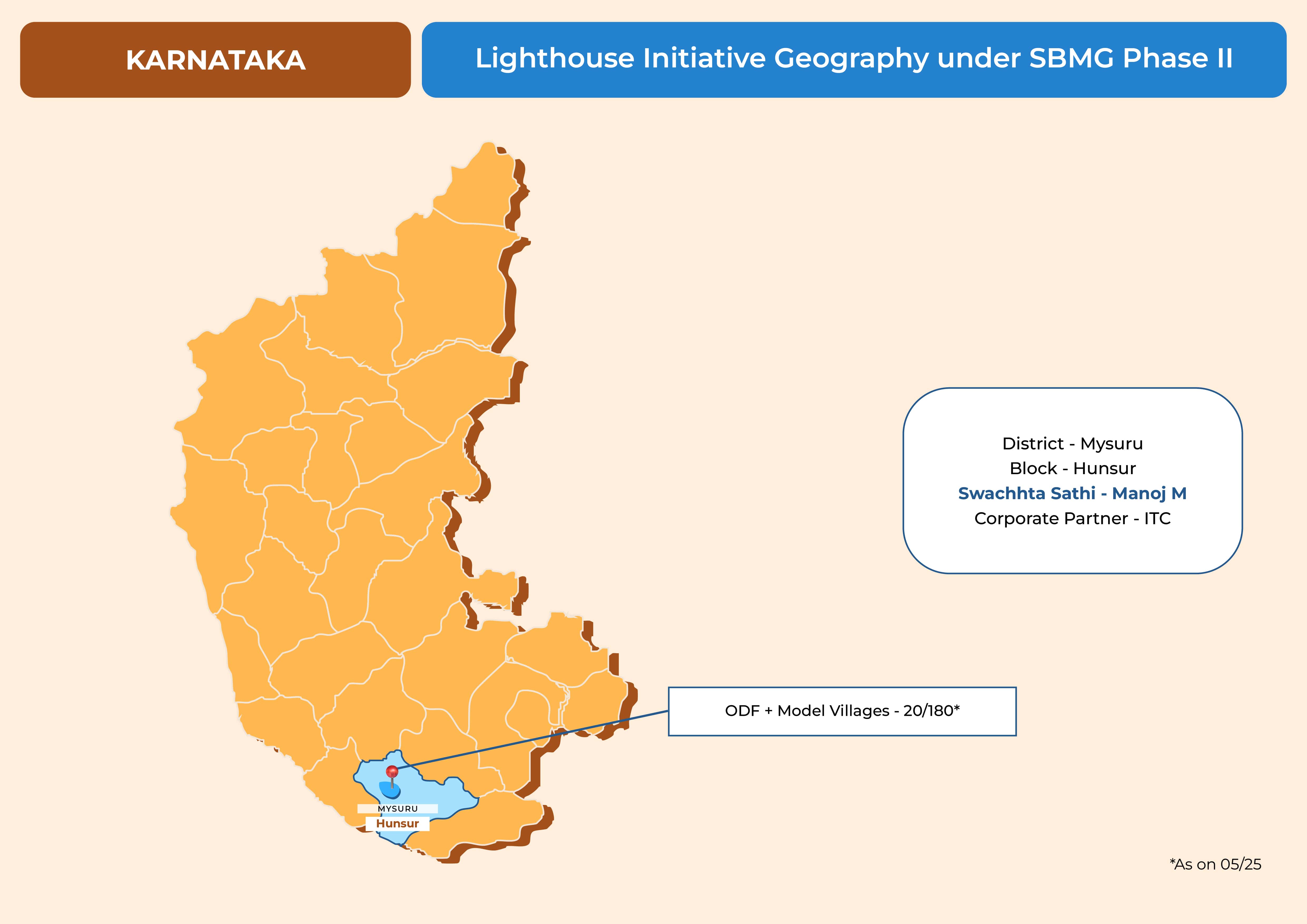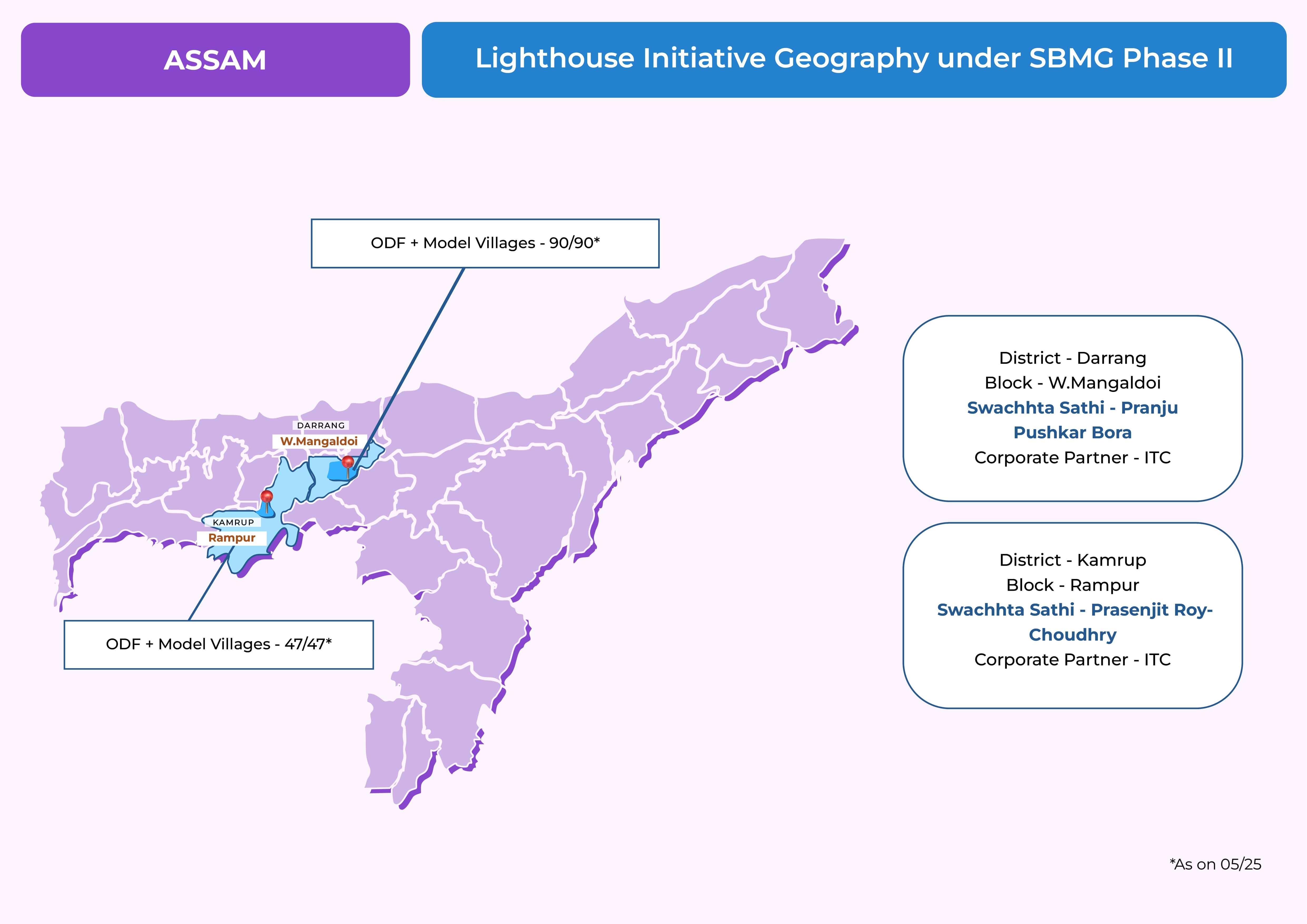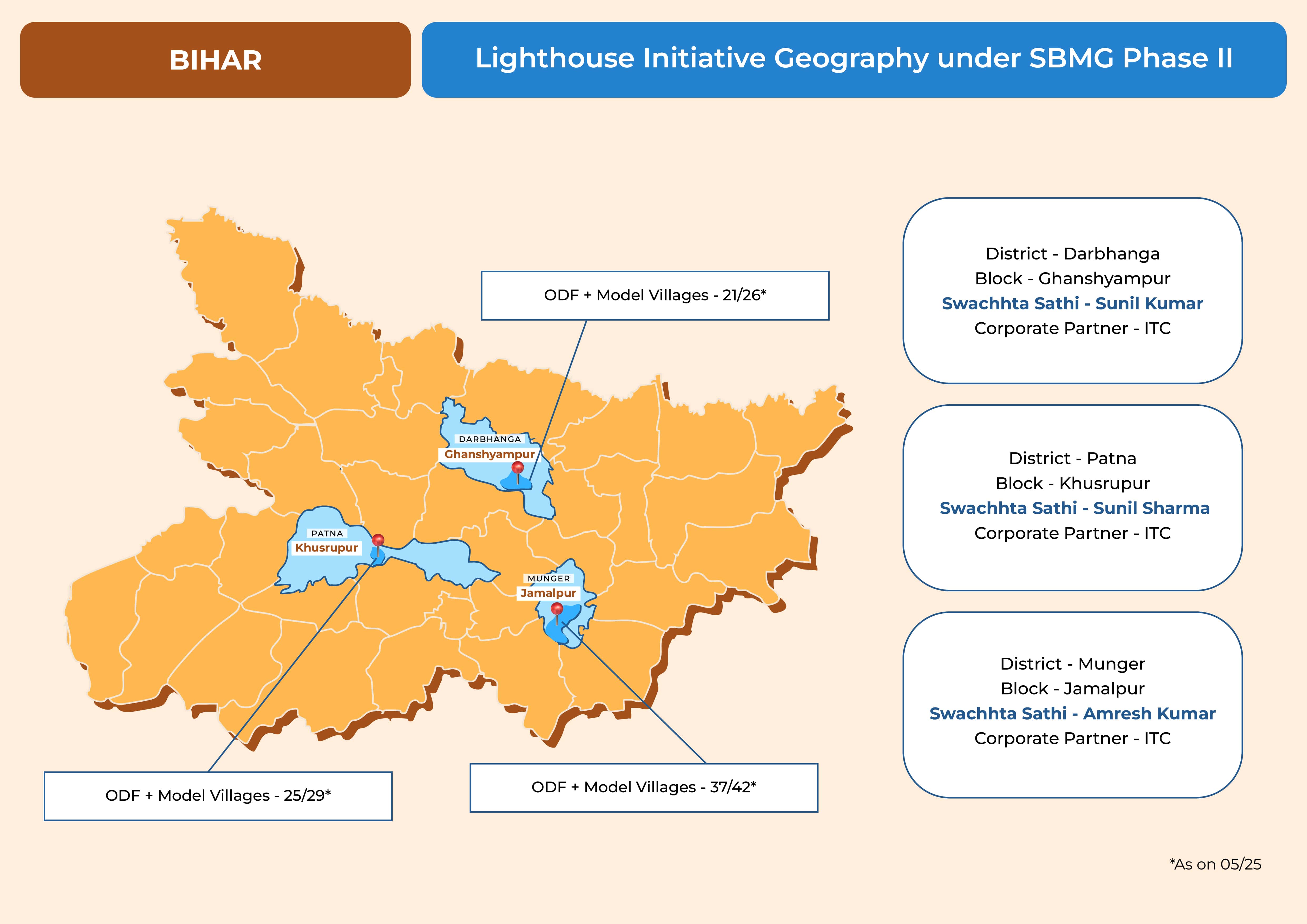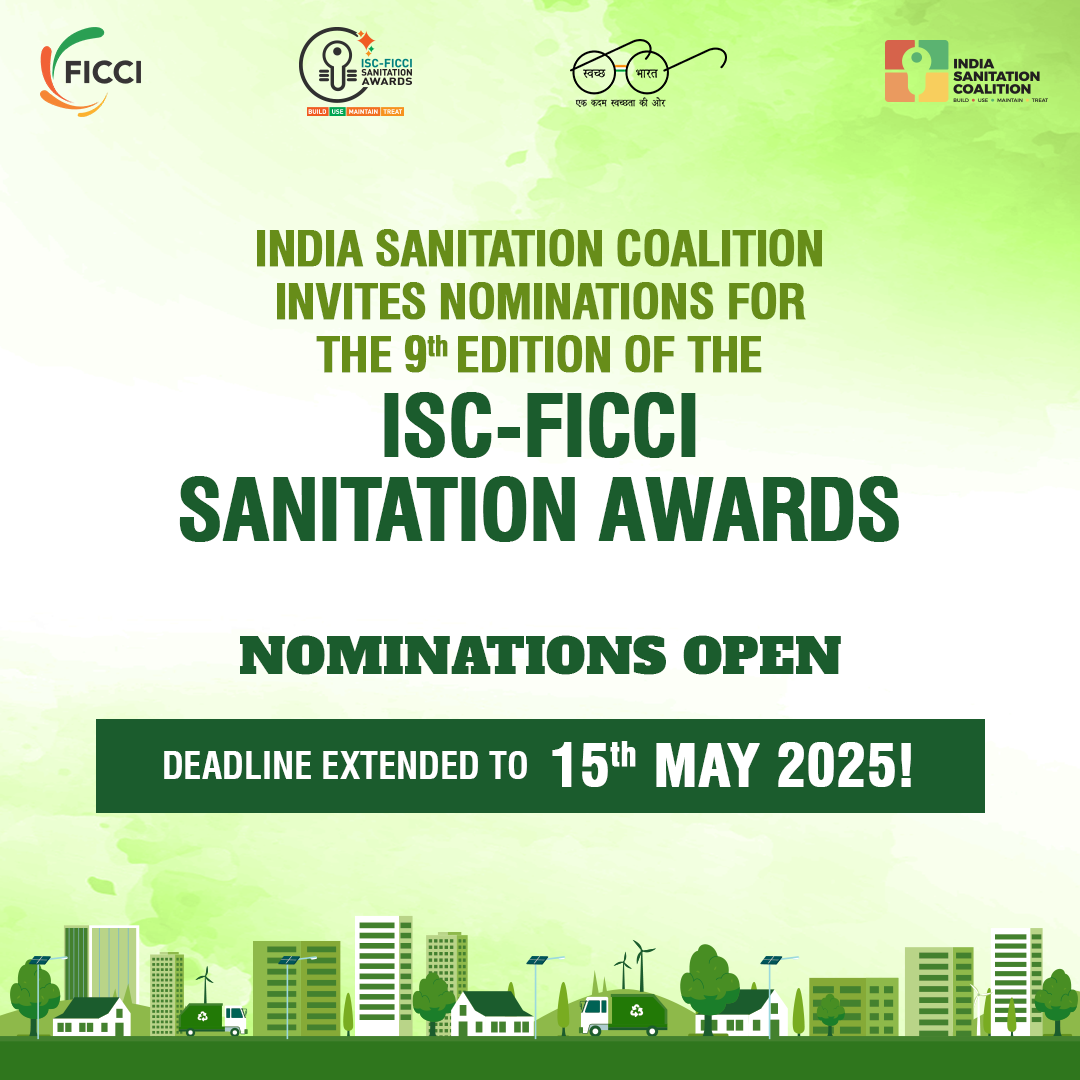THE LIGHTHOUSE INITIATIVE
The Lighthouse Initiative commissioned by the Ministry of Drinking Water and Sanitation is an intervention for the sanitation ecosystem, to be implemented in a public-private partnership mode. It will be piloted in 75 GPs /villages across fifteen states in its first phase. LHI is based on the principle of Inclusive Sanitation and Leaving No One Behind.
The LIGHT HOUSE INITIATIVE
The Lighthouse Initiative commissioned by the Department of Drinking Water and Sanitation, Ministry of Jal Shakti is an intervention for the sanitation ecosystem, implemented in a public-private partnership (PPP) mode. It was piloted in 75 GPs/villages across fifteen states in its first phase. LHI is based on the principle of Inclusive Sanitation and Leaving No One Behind.
Background: In a bid to accelerate the efforts to achieve universal sanitation coverage and to put the focus on sanitation, the Prime Minister of India launched the Swachh Bharat Mission (SWM) on 2nd October 2014. Under the mission, all villages, Gram Panchayats, Districts, States and Union Territories in India declared themselves “open-defecation free” (ODF) by 2 October 2019, to mark the 150th birth anniversary of Mahatma Gandhi, by constructing over 100 million toilets in rural India.
The Lighthouse Initiative (LHI), launched under the broader framework of the Swachh Bharat Mission (SBM), aspires to establish model gram panchayats and villages that set new benchmarks in sustainable sanitation and waste management. In its first phase, India Sanitation Coalition (ISC)-FICCI, in collaboration with a dynamic coalition of corporate partners, successfully implemented this ambitious project across 75 Gram Panchayats in 15 states, demonstrating scalable and impactful sanitation solutions. These 75 Gram Panchayats were strategically chosen to align with the commemoration of 75 years of India’s independence, symbolizing a commitment to nation-building through improved sanitation and hygiene.
LIGHTHOUSE INITIATIVE - PHASE 1
The Initiative aimed to effectively implement solid and liquid waste management structures in the villages of the 75 GPs, employing a participatory and consultative approach through the mobilization of village communities, corporates, district & block administration, and village or Gram Panchayat officers to work side by side in achieving the development plan drawn up for the village.
This project was implemented in 15 states across India. To lend their expertise and support to the initiative, 8 corporates signed up for this project. They were:
ITC - The states selected by ITC under the Lighthouse Initiative-Phase 1 were: Bihar, West Bengal, Telangana, Tamil Nadu, Karnataka, Maharashtra, Punjab, Uttar Pradesh, Uttarakhand, and Andhra Pradesh. Few districts from each of these states were selected for the initiative.
JSPL - The state selected by JSPL under the Lighthouse Initiative-Phase 1 was Odisha. Few districts from this state were selected for the initiative.
JSW Foundation - The states selected by JSW Foundation under the Lighthouse Initiative-Phase 1 were Karnataka and Maharashtra. Few districts from these states were selected for the initiative.
Ambuja Cements Limited: The states selected by Ambuja Cement Foundation under the Lighthouse Initiative-Phase 1 were Gujarat, Himachal Pradesh, Rajasthan, and Maharashtra. Few districts from these states were selected for the initiative.
HCL Foundation - The states selected by Tata Trust under the Lighthouse Initiative-Phase 1 were Uttar Pradesh, Assam, Gujarat, Rajasthan, and Andhra Pradesh. Few districts from these states were selected for the initiative.

Tata Trust - The states selected by Tata Trust under the Light House Initiative-Phase 1 are Uttar Pradesh, Assam, Gujarat, Rajasthan and Andhra Pradesh. Few districts from these states were selected for the initiative.
Nayara Energy - The state selected by Nayara Energy under the Lighthouse Initiative-Phase 1 was Gujarat. Few districts from this state were selected for the initiative.
Aga Khan Foundation- The state selected by Aga Khan Foundation under the Lighthouse Initiative-Phase 1 was Uttar Pradesh. Few districts from this state were selected for the initiative.
Download Light House Initiative - Phase 1 Report
LIGHTHOUSE INITIATIVE - PHASE 2 (LHI 2)
Building on the success of the first phase, LHI 2 is focused on expanding and institutionalizing best practices in rural sanitation and solid and liquid waste management (SLWM). This phase aims to:
- Scale up implementation across 40+ blocks in 13 states, creating sustainable sanitation ecosystems at a larger scale.
- Empower local communities by strengthening their capacity to manage operations and maintenance (O&M) services.
- Enhance collaboration between corporate partners, local governments, and grassroots organizations.
- Deploy a dedicated team of Swachhta Sathis (Block-Level Coordinators) to ensure effective on-ground implementation and long-term impact.
Our Corporate Partners Driving Change through LHI
- ITC Limited - A diversified Indian conglomerate headquartered in Kolkata, with business interests spanning FMCG, hotels, software, packaging, paperboards, specialty papers, and agribusiness.
- Hindalco Industries Limited - The metals flagship company of the Aditya Birla Group, Hindalco is a $28 billion industry leader in aluminium and copper production.
- HCL Foundation - The CSR arm of HCL Technologies, a leading multinational IT services and consulting company headquartered in Noida, with a global presence across 52 countries and over 210,966 employees.
- Nayara Energy Limited - A leading downstream energy company with a 20 MMTPA refinery at Vadinar, Gujarat, making it the second-largest refinery in India.
Our Approach: State-Level Interventions
At Private Sector Engagement (PSE) at ISC, we work alongside our partners to drive state-level interventions, engaging all key stakeholders—including government bodies, corporates, financial institutions, and grassroots organizations. Our approach involves:
- Analyzing challenges and gaps in sanitation and waste management at the state level.
- Hosting roundtable discussions and outreach programs to facilitate knowledge sharing.
- Creating collaborative platforms to identify sustainable, long-term solutions for WASH (Water, Sanitation, and Hygiene) challenges.
Together, we are committed to transforming rural sanitation and ensuring clean, sustainable, and resilient communities across India.




